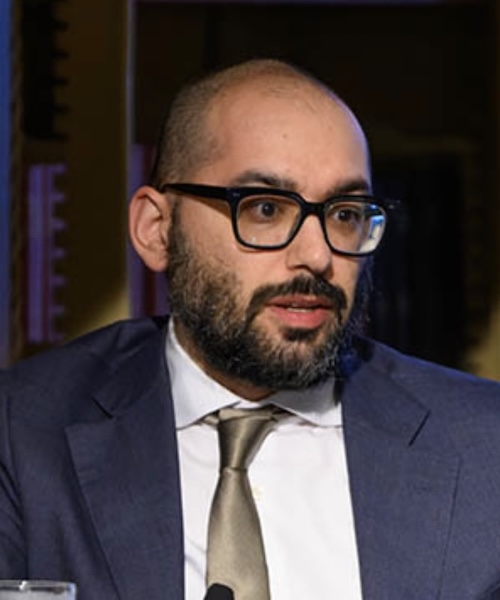To tell the pope’s story is to see how porous American civilization is, and how blurry its interior boundaries are. By “America,” I don’t mean the United States, but rather the whole of the Americas, from Canada through the Tierra del Fuego. The various stages of Prevost’s life, and that of his ancestors, touch upon three of the main former colonial powers of the Americas: France via Haiti, Britain in the United States, and Spain through Peru. Three different experiences of colonial rule, of race and racism, of the legacy of both—but also three different experiences of political development, cultural cross-pollination, and Christian evangelization—all contained within one man. “I contain multitudes,” said Whitman; what American—again, American in the broader sense—doesn’t contain multitudes?
It is Prevost’s destiny to be a (perhaps) not-so-welcome reminder to the Americas, and to the United States in particular, about the porous nature of its own identity. Just as John Paul II became a thorn on the side of the USSR—a Pole, a Catholic intellectual conversant in Marxism, a man whom the Iron Curtain could not contain—so too will Leo XIV become annoying to the ruling ideologues of the United States of America. Narrative is always the antidote to ideology. Leo’s story—both his personal background and the tradition he has tapped into with his chosen name of Leo—will challenge the dominant ideology in at least two ways.
The first way has to do with politics and culture. Right now, some leaders conceive of the United States as a nation state with, as a recent ICE recruitment advertisement puts it, a mission to defend its own culture. But that ad is an exercise in question-begging. Which culture would that be? To tell the story of Prevost is to tell the story of New Orleans, of Creole culture, of American Midwestern Catholic culture, of the ties North American Catholics have with the Latin American Church. Every time the pope speaks, he reminds us that the ruling ideology is wrong: the United States is a multiform, pluralistic society. It doesn’t necessarily lack sources of unity; but one cannot begin to understand American unity without first understanding those political and cultural parts that are united.
The United States is an empire composed of many nations. There’s nothing necessarily wrong with that; it’s merely an empirical and historical reality. Empires can do a lot of good in the world, just as nation-states can do a lot of evil. But the first step of wisdom is to know one’s self. And Leo, by being a mirror to and interlocutor with the United States, will help it along the path of self-knowledge.
The second way that Leo XIV will challenge the ruling ideology has to do with technology and economics. The United States is currently going through (and not for the first time) a Promethean moment. The rise of artificial intelligence (AI) and virtual reality (VR) technologies will upend the labor market and possibly accelerate economic growth while at the same time driving inequality and unemployment. These technologies come with an attendant vision of what a human being is, of how a human being should spend their time, and of what a human being should value. AI and VR will benefit humanity in positive ways. But they also carry with them the temptation to choose the virtual over the real, the disembodied over the carnal, the frivolous over the profound. The Catholic Church spent the last century reminding the liberal West that the soul exists. Now it might be thrust into the position of reminding the technocratic West that the body exists, too.
From the very beginning of his pontificate, Leo has signaled that he is aware of these challenges. More importantly, he sees these challenges not only in terms of theology, but of political economy. He draws inspiration from his namesake, Leo XIII, for whom—as we see in Rerum Novarum (Of New Things)—the problem of industrialization was framed in terms of politics. Business leaders in the United States disagree on how many jobs will be lost to burgeoning AI technologies. But they agree that many people will be out of work. The pope will remind these techno-utopians that work is an essential part of the human vocation to steward and develop God’s creation. He will also remind them that a world of AI-driven economic abundance will be hollow and unsatisfying if it replaces culture with slop and God with money.
For better or worse, and despite challenges from China and Russia, the United States today remains the main driving force in the world. Like the USSR in John Paul II’s time, it is an empire that can determine the future of the human race. Its ideas about itself, and the technologies that it creates, have a direct influence on the fate of nations far beyond its borders. It is comforting to know that the new pope understands this and, in fact, is an American himself.

